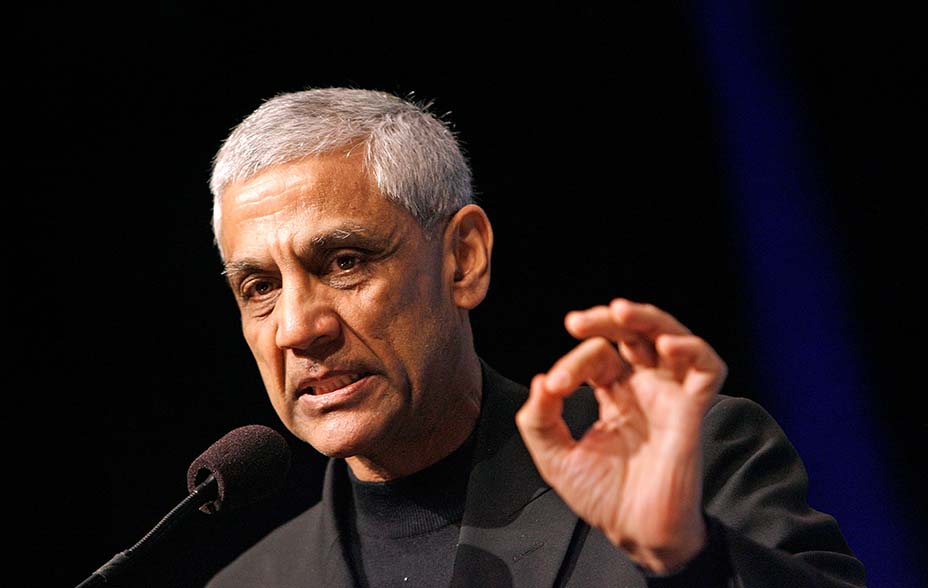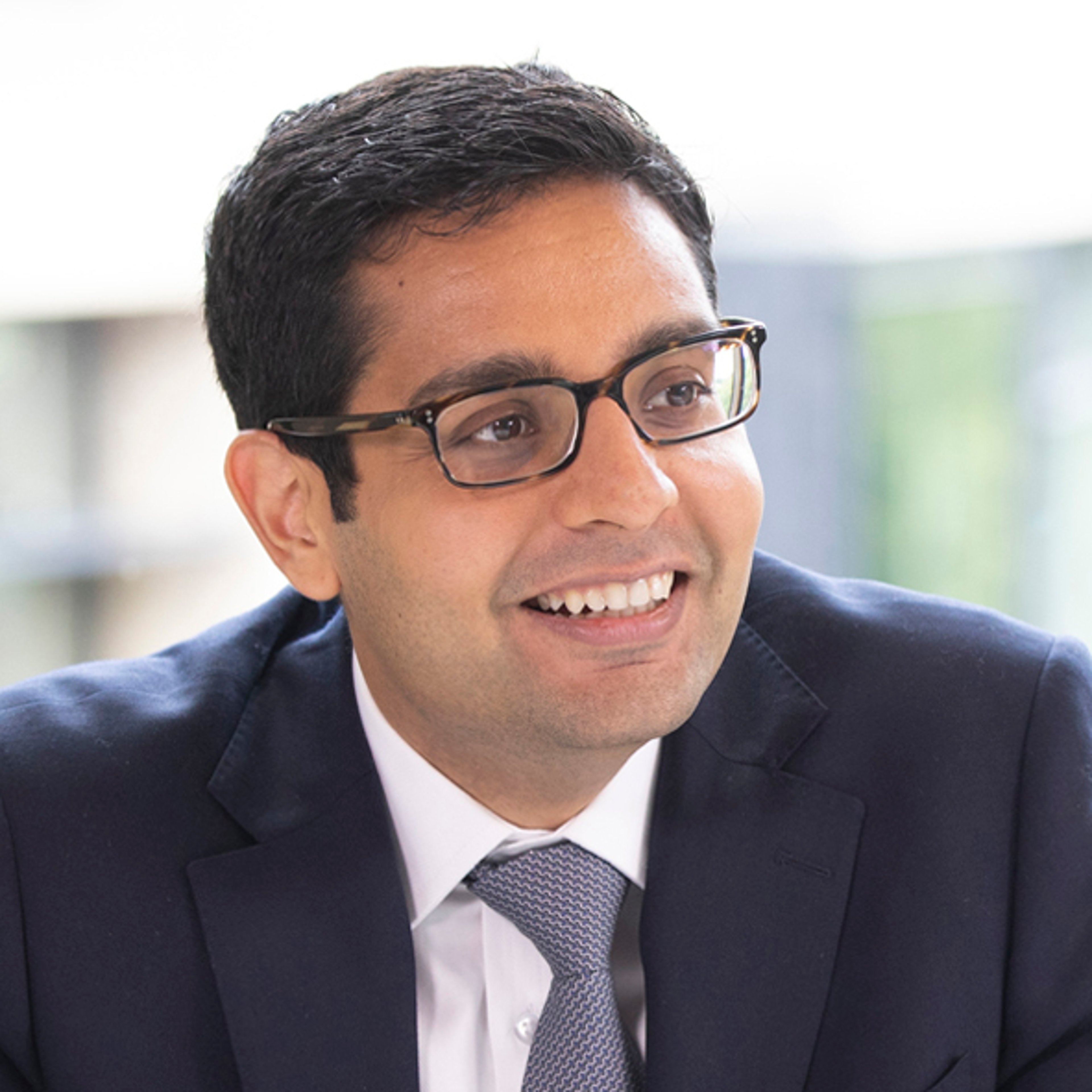
Since Jack Dorsey stepped down as Twitter’s chief executive, a lot of ink has been spilt on his replacement: Parag Agarwal, the firm’s Indian-born ex-chief technology officer.
Parag joins a long list of Indians at the helm of US tech firms. There is:
- Satya Nadella at Microsoft
- Sundar Pichai at Google
- Arvind Krishna at IBM
And that’s not to mention the founders or leaders of Adobe, Palo Alto Networks, VMware, Sun Microsystems and Match Group.
So, why do so many Indian leaders succeed at US tech firms?
There’s no simple answer, but it seems notable that many of them attended a single university network, the Indian Institutes of Technology (IITs). In fact, seven of the nine tech company leaders mentioned above, including Parag, graduated from an IIT.
The institutes are shaping technology globally despite being little known in the west.
The Wall Street Journal called them a ‘unicorn nursery’. And the network ranked fourth in the world after Harvard, Stanford, and the University of California in terms of the number of unicorns – private companies worth more than $1bn – created by its graduates.
That doesn’t surprise me. Almost every Indian start-up I have encountered personally – Delhivery, Flipkart, Zomato, Meesho, Swiggy, M-Fine, and upGrad, to name but a handful – was founded by an IIT grad. And a recent study found that of the 26 Indian companies that became unicorns in 2021, more than half their founders were IITians.

Engineering the future
So, what are the IITs? And why are they so successful in producing tech leaders?
I spoke to a dozen alumni, professors, and administrators to find out. The story that emerges reveals as much about the university as it does about India’s digital future.
The IITs were born out of desperation. During the two centuries of British colonial rule, India’s infrastructure had been designed to carry raw materials to the shores and shuttle the British military to quell dissent among the Indian people.
The tools required for development – literacy, electricity, factories, and hospitals – were largely missing. As such, India needed engineers. And that’s where the IIT story began.
Over time, India has set up 23 IIT campuses that are run quasi-independently, like the colleges of Oxford or Cambridge. IIT graduates have touched every sphere of India’s development, from nuclear power and the space programme to public policy.
The IITs have also driven innovation outside of India.
IIT Delhi alumni Vinod Khosla co-founded Sun microsystems which, in turn, created Java, the computer language at the heart of everything from data science to video games.
And IIT Madras alumni Deepak Sekar’s salad preparation robotics firm Chowbotics was acquired by DoorDash last year. The US food delivery firm has said it will offer the technology to its merchants to help them grow their businesses.
Analytical thinking
There are three reasons why the IITs have produced so many tech leaders.
Firstly, their ability to identify India’s brightest minds. Admission is through a problem-solving exam, and in a country where inequality and corruption are often rife, this test is a rare equaliser.
Preparation for the Joint Entrance Exam, or JEE, is taken so seriously that there are even admissions tests for the best places to coach you for the exam. It takes years of monastic dedication to get in. In 2021, just 0.5 per cent of undergraduate applicants were accepted. That makes Harvard’s 5 per cent rate look generous.
The mere mention of an Asian standardised test can conjure images of rote memorisation.
In some cases, that happens. For example, China’s Gaokao university entrance exam.
But the JEE is a problem-solving test in which memorisation alone gets you nowhere. Thus, when hundreds of thousands of India’s smartest kids spend tens of thousands of hours studying for it rather than engaging in rote learning, they practise problem solving.
The cognitive psychologist Anders Ericsson famously proposed that mastery requires 10,000 hours of practice. His evidence wasn’t airtight, but to spend so much time studying is clearly better than using it to play Candy Crush.
The second factor that sets IITs apart is that they offer India’s best professors and facilities. Though the curriculum may be somewhat dated, it turns out that if you put thousands of bright kids together, they end up teaching themselves. As much learning happens in dorm rooms and cafeterias as in lecture halls and labs.
Thirdly, when IIT students graduate, the institution’s name opens doors and increasingly investors’ wallets. There are even funds that specifically target IIT grads. The alumni network has become a tech incubator that helps graduates start, fund, and scale their ventures.
Overall, by finding the very best minds and bringing them together to collaborate, compete, and grow, the IITs are helping India enter a new age of innovation.
Why should investors care?
There are two reasons why all this should matter to investors.
The first is nebulous but important. Almost every tech founder you meet in India will have gone to an IIT. Many of the policy makers and bank analysts you meet are also products of this system. Appreciating the most formative period of their lives helps you understand them better and connect with them on a more personal level.
Secondly, when it comes to investing in the Indian tech sector, the depth of talent in the IIT network should fill you with optimism about the future of digital India. As a country, India faces myriad challenges. But those challenges also present opportunities. Thanks to the IITs, the country has no shortage of sharp, driven minds capable of turning capital and computer code into socially useful and profitable ventures.
A boom in the technology sector alone might not be enough to propel India forward. No country, so far, has achieved middle-income status without cracking manufacturing. But the 21st-century technologies being pioneered at the IITs might offer India an additional, if not an alternative, ladder for growth. As the Modi government works hard to turn India into a global manufacturing hub, it should take heart from the fact that when it comes to producing world-class technology leaders, the country is already operating at scale.
Risk Factors
The views expressed in this communication are those of Abhishek Parajuli and should not be considered as advice or a recommendation to buy, sell or hold a particular investment. They reflect personal opinion and should not be taken as statements of fact nor should any reliance be placed on them when making investment decisions.
This communication was produced and approved in January 2022 and has not been updated subsequently. It represents views held at the time of writing and may not reflect current thinking.
Stock Examples
Any stock examples and images used in this communication are not intended to represent recommendations to buy or sell, neither is it implied that they will prove profitable in the future. It is not known whether they will feature in any future portfolio produced by us. Any individual examples will represent only a small part of the overall portfolio and are inserted purely to help illustrate our investment style.
This communication contains information on investments which does not constitute independent research. Accordingly, it is not subject to the protections afforded to independent research, but is classified as advertising under Art 68 of the Financial Services Act (‘FinSA’) and Baillie Gifford and its staff may have dealt in the investments concerned.
All information is sourced from Baillie Gifford & Co and is current unless otherwise stated.
The images used in this communication are for illustrative purposes only.
Important Information
Baillie Gifford & Co and Baillie Gifford & Co Limited are authorised and regulated by the Financial Conduct Authority (FCA). Baillie Gifford & Co Limited is an Authorised Corporate Director of OEICs.
Baillie Gifford Overseas Limited provides investment management and advisory services to non-UK Professional/Institutional clients only. Baillie Gifford Overseas Limited is wholly owned by Baillie Gifford & Co. Baillie Gifford & Co and Baillie Gifford Overseas Limited are authorised and regulated by the FCA in the UK.
Persons resident or domiciled outside the UK should consult with their professional advisers as to whether they require any governmental or other consents in order to enable them to invest, and with their tax advisers for advice relevant to their own particular circumstances.
Financial Intermediaries
This communication is suitable for use of financial intermediaries. Financial intermediaries are solely responsible for any further distribution and Baillie Gifford takes no responsibility for the reliance on this document by any other person who did not receive this document directly from Baillie Gifford.
Europe
Baillie Gifford Investment Management (Europe) Limited provides investment management and advisory services to European (excluding UK) clients. It was incorporated in Ireland in May 2018 and is authorised by the Central Bank of Ireland. Through its MiFID passport, it has established Baillie Gifford Investment Management (Europe) Limited (Frankfurt Branch) to market its investment management and advisory services and distribute Baillie Gifford Worldwide Funds plc in Germany. Similarly, it has established Baillie Gifford Investment Management (Europe) Limited (Amsterdam Branch) to market its investment management and advisory services and distribute Baillie Gifford Worldwide Funds plc in The Netherlands. Baillie Gifford Investment Management (Europe) Limited also has a representative office in Zurich, Switzerland pursuant to Art. 58 of the Federal Act on Financial Institutions (‘FinIA’). It does not constitute a branch and therefore does not have authority to commit Baillie Gifford Investment Management (Europe) Limited. It is the intention to ask for the authorisation by the Swiss Financial Market Supervisory Authority (FINMA) to maintain this representative office of a foreign asset manager of collective assets in Switzerland pursuant to the applicable transitional provisions of FinIA. Baillie Gifford Investment Management (Europe) Limited is a wholly owned subsidiary of Baillie Gifford Overseas Limited, which is wholly owned by Baillie Gifford & Co.
China
Baillie Gifford Investment Management (Shanghai) Limited
柏基投资管理(上海)有限公司 (‘BGIMS’) is wholly owned by Baillie Gifford Overseas Limited and may provide investment research to the Baillie Gifford Group pursuant to applicable laws. BGIMS is incorporated in Shanghai in the People’s Republic of China (‘PRC’) as a wholly foreign-owned limited liability company with a unified social credit code of 91310000MA1FL6KQ30. BGIMS is a registered Private Fund Manager with the Asset Management Association of China (‘AMAC’) and manages private security investment fund in the PRC, with a registration code of P1071226.
Baillie Gifford Overseas Investment Fund Management (Shanghai) Limited
柏基海外投资基金管理(上海)有限公司 (‘BGQS’) is a wholly owned subsidiary of BGIMS incorporated in Shanghai as a limited liability company with its unified social credit code of 91310000MA1FL7JFXQ. BGQS is a registered Private Fund Manager with AMAC with a registration code of P1071708. BGQS has been approved by Shanghai Municipal Financial Regulatory Bureau for the Qualified Domestic Limited Partners (QDLP) Pilot Program, under which it may raise funds from PRC investors for making overseas investments.
Hong Kong
Baillie Gifford Asia (Hong Kong) Limited 柏基亞洲(香港)有限公司 is wholly owned by Baillie Gifford Overseas Limited and holds a Type 1 and a Type 2 license from the Securities & Futures Commission of Hong Kong to market and distribute Baillie Gifford’s range of collective investment schemes to professional investors in Hong Kong. Baillie Gifford Asia (Hong Kong) Limited 柏基亞洲(香港)有限公司 can be contacted at Suites 2713-2715, Two International Finance Centre, 8 Finance Street, Central, Hong Kong. Telephone +852 3756 5700.
South Korea
Baillie Gifford Overseas Limited is licensed with the Financial Services Commission in South Korea as a cross border Discretionary Investment Manager and Non-discretionary Investment Adviser.
Japan
Mitsubishi UFJ Baillie Gifford Asset Management Limited (‘MUBGAM’) is a joint venture company between Mitsubishi UFJ Trust & Banking Corporation and Baillie Gifford Overseas Limited. MUBGAM is authorised and regulated by the Financial Conduct Authority.
Australia
Baillie Gifford Overseas Limited (ARBN 118 567 178) is registered as a foreign company under the Corporations Act 2001 (Cth) and holds Foreign Australian Financial Services Licence No 528911. This material is provided to you on the basis that you are a ‘wholesale client’ within the meaning of section 761G of the Corporations Act 2001 (Cth) (‘Corporations Act’). Please advise Baillie Gifford Overseas Limited immediately if you are not a wholesale client. In no circumstances may this material be made available to a ‘retail client’ within the meaning of section 761G of the Corporations Act.
This material contains general information only. It does not take into account any person’s objectives, financial situation or needs.
South Africa
Baillie Gifford Overseas Limited is registered as a Foreign Financial Services Provider with the Financial Sector Conduct Authority in South Africa.
North America
Baillie Gifford International LLC is wholly owned by Baillie Gifford Overseas Limited; it was formed in Delaware in 2005 and is registered with the SEC. It is the legal entity through which Baillie Gifford Overseas Limited provides client service and marketing functions in North America. Baillie Gifford Overseas Limited is registered with the SEC in the United States of America.
The Manager is not resident in Canada, its head office and principal place of business is in Edinburgh, Scotland. Baillie Gifford Overseas Limited is regulated in Canada as a portfolio manager and exempt market dealer with the Ontario Securities Commission (‘OSC’). Its portfolio manager licence is currently passported into Alberta, Quebec, Saskatchewan, Manitoba and Newfoundland & Labrador whereas the exempt market dealer licence is passported across all Canadian provinces and territories. Baillie Gifford International LLC is regulated by the OSC as an exempt market and its licence is passported across all Canadian provinces and territories. Baillie Gifford Investment Management (Europe) Limited (‘BGE’) relies on the International Investment Fund Manager Exemption in the provinces of Ontario and Quebec.
Oman
Baillie Gifford Overseas Limited (‘BGO’) neither has a registered business presence nor a representative office in Oman and does not undertake banking business or provide financial services in Oman. Consequently, BGO is not regulated by either the Central Bank of Oman or Oman’s Capital Market Authority. No authorization, licence or approval has been received from the Capital Market Authority of Oman or any other regulatory authority in Oman, to provide such advice or service within Oman. BGO does not solicit business in Oman and does not market, offer, sell or distribute any financial or investment products or services in Oman and no subscription to any securities, products or financial services may or will be consummated within Oman. The recipient of this material represents that it is a financial institution or a sophisticated investor (as described in Article 139 of the Executive Regulations of the Capital Market Law) and that its officers/employees have such experience in business and financial matters that they are capable of evaluating the merits and risks of investments.
Qatar
The materials contained herein are not intended to constitute an offer or provision of investment management, investment and advisory services or other financial services under the laws of Qatar. The services have not been and will not be authorised by the Qatar Financial Markets Authority, the Qatar Financial Centre Regulatory Authority or the Qatar Central Bank in accordance with their regulations or any other regulations in Qatar.
Israel
Baillie Gifford Overseas is not licensed under Israel’s Regulation of Investment Advising, Investment Marketing and Portfolio Management Law, 5755-1995 (the Advice Law) and does not carry insurance pursuant to the Advice Law. This material is only intended for those categories of Israeli residents who are qualified clients listed on the First Addendum to the Advice Law.
ref 14706 10006682




